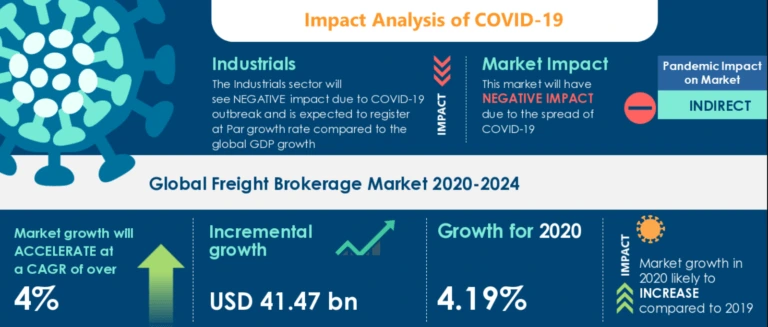The freight brokerage industry, like many others, has been significantly impacted by the global COVID-19 pandemic.
This period of unprecedented change has accelerated certain trends while also presenting new challenges and opportunities. In this blog post, we explore the current state of the freight brokerage industry and predict how it might evolve in the post-Covid era.
The pandemic brought about a surge in demand for freight services due to the exponential growth of e-commerce and changes in consumer behavior. This demand led to a corresponding increase in the number and activity of freight brokers, facilitating the connection between shippers and carriers.
However, this rapid expansion also brought challenges, including increased competition and the need for more sophisticated technology solutions.
One of the most significant trends in the freight brokerage industry is the continued digital transformation. The adoption of advanced technologies such as AI, machine learning, and blockchain is becoming increasingly prevalent.
These technologies offer enhanced efficiency, better matching of carriers with shippers, improved tracking and transparency, and more predictive analytics for demand and route optimization.
Another trend gaining momentum in the freight brokerage industry is the focus on sustainability. With growing awareness of environmental issues, there is an increasing demand for eco-friendly transportation solutions.
Freight brokers are now more than ever looking into ways to reduce carbon footprints, such as optimizing routes for fuel efficiency and supporting the use of electric or alternative fuel vehicles.

Government regulations and compliance continue to play a significant role in shaping the future of freight brokerage. Regulations concerning transportation safety, emissions, and labor are evolving, and brokers must stay informed and compliant.
Additionally, the industry might see new regulations, especially in areas related to digital operations and cybersecurity, given the increasing reliance on technology.
If the Covid-19 pandemic has taught the industry anything, it’s the value of flexibility and resilience. Freight brokers must be able to quickly adapt to changing market conditions, supply chain disruptions, and evolving customer needs.
This adaptability might involve diversifying service offerings, exploring new markets, or investing in robust technology platforms that can handle dynamic changes.
As we move into the post-Covid era, the freight brokerage industry is poised for continued growth and transformation. The key to success will be in embracing technological advancements, prioritizing sustainability, staying compliant with regulations, and building resilience to adapt to future challenges. By focusing on these areas, freight brokers can not only survive but thrive in the evolving landscape of global logistics.
In conclusion, securing payments in the supply chain is a complex but manageable challenge for carriers.
By understanding their legal rights, conducting due diligence, leveraging technology, and building strong relationships, carriers can better navigate this landscape